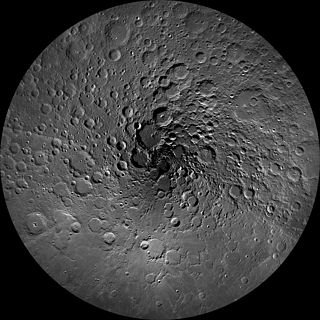The Centennial Challenges are NASA space competition inducement prize contests for non-government-funded technological achievements by American teams.

Interorbital Systems (IOS) is an American space development company based in Mojave, California. It was established in 1996 by Roderick and Randa Milliron. As of October 2023, the company is in development stage for three orbital launch vehicles: NEPTUNE, TRITON, and TRITON HEAVY.

The Google Lunar X Prize (GLXP) was a 2007–2018 inducement prize space competition organized by the X Prize Foundation, and sponsored by Google. The challenge called for privately funded teams to be the first to land a lunar rover on the Moon, travel 500 meters, and transmit back to Earth high-definition video and images.

Astrobotic Technology, Inc., commonly referred to as Astrobotic, is an American private company that is developing space robotics technology for lunar and planetary missions. It was founded in 2007 by Carnegie Mellon professor Red Whittaker and his associates with the goal of winning the Google Lunar X Prize. The company is based in Pittsburgh, Pennsylvania. Their first launch occurred on January 8, 2024, as part of NASA's Commercial Lunar Payload Services (CLPS) program. The launch carried the company's Peregrine lunar lander on board the first flight of the Vulcan Centaur rocket from Florida's Space Force Station LC-41. The mission was unable to reach the Moon for a soft or hard landing. On June 11, 2020, Astrobotic received a second contract for the CLPS program. NASA would pay Astrobotic US$199.5 million to take the VIPER rover to the Moon, targeting a landing in November 2024. In July 2024, NASA announced that VIPER had been cancelled.

The lunar north pole is the point in the Northern Hemisphere of the Moon where the lunar axis of rotation meets its surface.

Team FREDNET is an international Open Source and Open Participation competitor in the Google Lunar X PRIZE competition. Uniquely, the team also allows organizations and individuals to participate freely in its mission through the team's website. Their strategy is to utilize the same approach for developing open source software in order to build a lunar lander and a lunar rovers capable of winning the Google Lunar X Prize. Team FREDNET plans to establish an Open Space Foundation that provides incentives, education, and funding to future individuals and organizations seeking to develop their own space projects. In addition, they hope to foster greater public interest and education in Space Exploration and Research.

Hakuto (ハクト) or formerly White Label Space (ホワイトレーベルスペース) was a team formed in early 2008 by a group of experienced space professionals inspired by the challenge of the Google Lunar X PRIZE to develop a robotic Moon exploration mission.
Planetary Transportation Systems (PTS), formerly known as PTScientists and Part-Time Scientists, is a Berlin-based aerospace company. They developed the robotic lunar lander "ALINA" and seek to land on the Moon with it. They became the first German team to officially enter the Google Lunar X-Prize competition on June 24, 2009, but failed to reach the finals in 2017 for lack of a launch contract. During the summer of 2019, the company filed for bankruptcy, and the ALINA project was put on hold. In July 2021, PTS was selected with ArianeGroup to build ESA's ASTRIS kick-stage.
Moon Express is an American privately held company formed in 2010 by a group of Silicon Valley and space entrepreneurs. It had the goal of winning the $30 million Google Lunar X Prize, and of ultimately mining the Moon for natural resources of economic value. The company was not able to make a launch attempt to reach the Moon by March 31, 2018, the deadline for the prize.
The Rocket City Space Pioneers (RCSP) was one of 29 teams from 17 different countries officially registered and in the competition for the Google Lunar X PRIZE (GLXP) during 2010–2012.
Barcelona Moon Team is a Spanish team led by Galactic Suite Design, which is participating in the Google Lunar X Prize.
TeamIndus is a private for-profit aerospace company headquartered in Bangalore, India. It consists of a team of professionals from various backgrounds in science, technology, finance, and media, that came together in 2010 with the aim of winning the Google Lunar X Prize competition announced in 2007. Although the competition ended in 2018 without a winner, TeamIndus is still working towards developing and launching their lunar rover mission sometime in 2020 after partnering with OrbitBeyond.

SpaceIL is an Israeli organization, established in 2011, that competed in the Google Lunar X Prize (GLXP) contest to land a spacecraft on the Moon.

Synergy Moon is an international commercial enterprise dedicated to the development of space technologies and related services.
Team AngelicvM is a private company based in Chile that plans to deploy a small rover on the Moon. Their rover, called Unity, is one of various rovers that will be carried by the commercial Peregrine lander manufactured by Astrobotic Technology.
ispace Inc. is a publicly traded Japanese company developing robotic spacecraft and other technology to compete for both transportation and exploration mission contracts from space agencies and other private industries. ispace's mission is to enable its clients to discover, map, and use natural lunar resources.

Orbit Beyond, Inc., usually stylized as ORBITBeyond, is an aerospace company that builds technologies for lunar exploration. Its products include configurable delivery lunar landers with a payload capacity of up to 300 kg (660 lb), and rovers.

Audi Lunar Quattro (ALQ) is type of small lunar rover created by a team of engineers from Germany, PTScientists, with the support of Audi and a number of scientists and companies from different countries in 2015.

CAPSTONE is a lunar orbiter that is testing and verifying the calculated orbital stability planned for the Lunar Gateway space station. The spacecraft is a 12-unit CubeSat that is also testing a navigation system that is measuring its position relative to NASA's Lunar Reconnaissance Orbiter (LRO) without relying on ground stations. It was launched on 28 June 2022, arrived in lunar orbit on 14 November 2022, and was scheduled to orbit for six months. On 18 May 2023, it completed its primary mission to orbit in the near-rectilinear halo orbit for six months, but will stay on this orbit, continuing to perform experiments during an enhanced mission phase.



















